Two Iranian Investigative Journalists Arrested
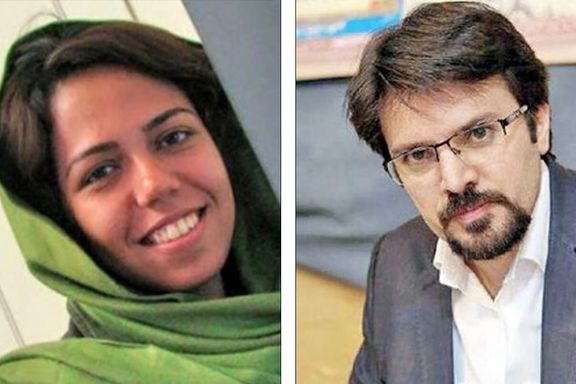
Yashar Soltani and Saba Azarpeik, two prominent Iranian journalists known for their reporting on corruption, have been arrested to serve their sentences, according to Shargh newspaper.

Yashar Soltani and Saba Azarpeik, two prominent Iranian journalists known for their reporting on corruption, have been arrested to serve their sentences, according to Shargh newspaper.
Both journalists have been vocal critics of the Iranian government, exposing financial wrongdoing within its ranks.
Soltani faces a 13-month sentence for “spreading lies to disturb the public's mind."
Azarpeik is facing charges in two separate cases, with a total of 15 private accusers. She has been convicted in one case and sentenced to two years in prison and a fine for “defamation and publishing false information.” The legal process of the other case with eight private accusers is also under review and the final verdict has not been issued.
Soltani served jail time in 2016 for uncovering financial corruption within the Tehran Municipality during the leadership of current parliament speaker Mohammad Bagher Ghalibaf.
In an interview in October, Soltani lamented the persistence of corruption, highlighting how corrupt individuals remain unscathed despite exposure. He further criticized the Iranian justice system's alleged bias towards those close to the regime's core, including Supreme Leader Ali Khamenei's inner circle.
Azarpeik 's investigative work brought to light various corruption cases, including corruption within the Tehran Municipality under Ghalibaf and corruption within the Ministry of Industry, Mines and Trade under both Hassan Rouhani and Ebrahim Raisi's administrations.
Her commitment to exposing wrongdoing has come at a cost. She faced legal repercussions in 2009 for reporting on police brutality and has been arrested on multiple occasions.
Detained in June 2014 on vague national security charges, she was held in solitary confinement for 40 days before release on bail in August 2014.
The arrests of Soltani and Azarpeik highlight the challenges faced by journalists who dare to challenge the status quo in Iran.
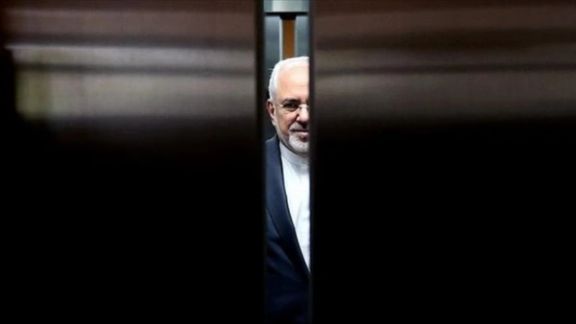
A short video interview with a 'moderate' candidate in Iran’s upcoming presidential election has stirred interest because a reporter asked the candidate if he would appoint Javad Zarif as foreign minister if elected president.
Massoud Pezeshkian, a lawmaker running as the sole ‘reformist’ candidate replied that he would welcome people “who have experience, knowledge and are effective,” without directly affirming or rejecting Zarif’s possible appointment.
Pezeshkian is being promoted by some on social media as an alternative to five other candidates who are clearly on the conservative side of the political spectrum. Whether the highly manipulated election will give Pezeshkian a fair chance, or whether millions of disillusioned voters would rally around him are entirely different questions.
In the last three elections, in 2020, 2021 and March 2024, a substantial segment of voters stayed away from the ballot box. Turnout was substantially below 50%, although amid government control over information it is hard to exactly know how many people voted. In the March parliamentary elections, officials announced that around 40% of eligible voters participated, but many regard this as an exaggerated tally by those who are in control.
Zarif has not commented on his willingness to re-enter the government. However, he was one of over 150 'reformist' figures who signed a letter last week, urging the regime to moderate its behavior and encouraging people to vote. 'Reformists' as their label denotes, are committed to the essence of the Islamic Republic as a political system but cautiously criticize some of its practices.
For example, in the letter, signed by many prominent 'reformists' homage is paid to Iran's missile and drome attack on Israel, harshly condemning the United States for its support for the Jewish state. However, the signatories criticize the regime for its internal policies favoring hardliners and creating a rift with the people.
The make-up of six candidates, out of 80 aspirants, approved by the unelected Guardian Council, which is controlled by Supreme Leader Ali Khamenei, is not much different from the 2021 election. The list is dominated by conservatives and hardliners loyal to Khamenei, with one ‘reformist’ included who has to face difficult odds if 10 million more voters do not turn up to push him ahead of others.
But voters have tested what many call “the regime’s game.” In order to increase turnout and boost the Islamic Republic’s waning legitimacy, sometimes a reformist is included to attract voters. Even if that candidate wins, an array of conservative state institutions, media and pressure groups launch obstructive campaigns to make the elected official ineffective.
This is what happened to President Mohammad Khatami (1997-2005), who faced crisis after crisis during his tenure, mostly manufactured by hardliners. The same awaited ‘centrist’ Hassan Rouhani (2013-2021), who was harassed and subjected to incessant attacks, while having little control over key economic and diplomatic decisions.
These two presidents were elected by large turnouts encouraged by ‘reformist’ groups and parties. However, voters realized that no meaningful change could take place, even if a ‘reformist’ is president or ‘moderates’ dominate the parliament.
The question now is whether Pezeshkian, a physician seemingly untainted by corruption scandals, can motivate "the gray strata" to come out and vote. If he secures a decisive victory, he might consider appointing Javad Zarif. However, it's important to note that Khamenei has the final say on most ministerial appointments. If he agrees with Zarif’s appointment, it could mean an inclination to use his diplomatic experience to find a way out of back-breaking sanctions that have paralyzed the economy.
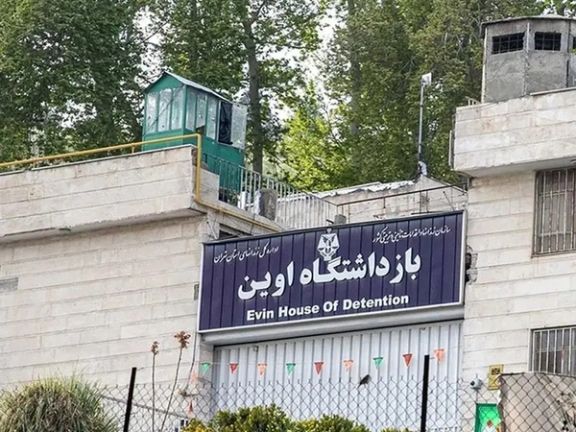
Six political prisoners at Tehran’s notorious Evin Prison have been charged with armed rebellion against the state, a crime that could result in the death penalty, sparking significant concerns among human rights groups.
These charges were brought by the fifth branch of the Islamic Revolutionary Prosecutor's Office of Tehran, according to a report by the Human Rights Activists News Agency (HRANA) on Friday. The accusations stem from their alleged "membership and collaboration with a group opposing the regime" as reported by HRANA.
In a joint case, Vahid Bani-Amerian, Pouya Ghobadi, Babak Alipour, Abolhasan Montazer, Seyed Mohammad Taghavi, and Ashghar Daneshfar were accused of “baghi” (armed rebellion) and "assembly and collusion against national security" on May 14.
Article 287 of the Islamic Penal Code states that any group taking up arms against the Islamic Republic is considered a rebel and "its members shall be sentenced to death.” This provision means that the six prisoners are facing potential execution due to the charge of rebellion.
HRANA further reported that Bani-Amerian, Ghobadi, Alipour, Montazer, Taghavi, and Daneshfar were arrested in the fall and winter of last year and transferred to Evin prison. They are currently held in various sections of the prison’s Ward 4.
65-year-old Montazer was a former political prisoner during the 1980s and also served time as a political prisoner in recent years. He was released from the infamous Rajaei Shahr Prison in Karaj last year after serving three years of imprisonment.
57-year-old Taghavi was also a former political prisoner in the 1980s.
Alipour and Ghobadi were also arrested in previous years and served time as political prisoners.
Following Iran’s 1979 revolution, the Islamic Republic has continuously arrested, tortured, imprisoned, and executed dissident civil and political activists.
According to Amnesty International, between late July and September 1988, the Iranian authorities “forcibly disappeared and extrajudicially executed” at least 5,000 political prisoners.
Following Iran’s nationwide uprising which started in September 2022 following the killing of Mahsa Zhina Amini in the custody of the so-called ‘morality police’, Iranian authorities have intensified the repression of civil and political activists.
Additional Detainees Facing Armed Rebellion Charges
In February of this year, Iran International reported that two female political prisoners, Varisheh Moradi and Pakhshan Azizi, who are imprisoned in Evin Prison, are facing accusations of "armed rebellion". Moradi and Azizi’s cases were referred to the Revolutionary Court in Tehran for hearings.
Nasim Gholami Simiyari, a political prisoner also imprisoned in Evin prison, has been in custody since her arrest on 18 May 2023 on similar charges of “armed rebellion”.
Golrokh Irani, a political prisoner, wrote a letter from Evin Prison on May 21, marking the first anniversary of Simiyari's arrest and ongoing detention. In the letter, Irani stated that Simiyari was forced to confess against herself during interrogations.
Referring to Simiyari as a protestor in Iran’s nationwide Woman Life uprising, Irani remarked that “bringing heavy charges against a protestor on the streets” reflects the “desperation and malice of the state and its judicial and security [institutions] apparatus.”
“Protest is our right and the street is ours," Irani added.
Last week, writing about Simiyari's legal limbo, pro Bono Dadban Legal Group stated that prolonged indeterminate detention has become a tactic for Iranian authorities to isolate prisoners from their lawyers, apply pressure, and harass them, prisoner, extract forced confessions to build cases against them.
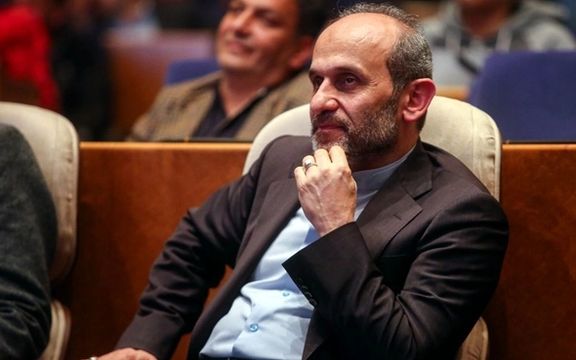
Iran's upcoming televised presidential election debate will be held under strict government control, according to Iran's broadcast chief.
Peyman Jebelli, the head of the Islamic Republic of Iran Broadcasting (IRIB), said the debates, slated as the main event of the election broadcasts, are set to last between three and a half to four hours.
The announcement comes after the Sunday confirmation by the Guardian Council of the final list of candidates for Iran’s snap presidential election on June 28—a list unsurprisingly dominated by hardliners loyal to Supreme Leader Ali Khamenei and all male.
Among those approved are Parliament Speaker Mohammad Bagher Ghalibaf, Supreme National Security Council representative Saeed Jalili, and Tehran Mayor Alireza Zakani, all known for their conservative stances. The roster also includes former Justice and Interior Minister Mostafa Pourmohammadi, current Vice President Amir-Hossein Ghazizadeh Hashemi, and Masoud Pezeshkian, a 'reformist' parliamentarian.
Jebelli said that the main topics for the debate would be distributed to the candidates' headquarters in advance to aid their preparation, yet the unresolved selection of debate moderators raises concerns about potential bias and manipulation.
In a display of the intent to control the narrative, Jebelli stated, “To prevent slander, defamation, and maligning against candidates, IRIB will definitely address electoral misconduct on behalf of the people and the government. We will assist the candidates in responding to attacks. We will expose and deal with the elements causing destruction, as this is the demand of the people and the Supreme Leader.”
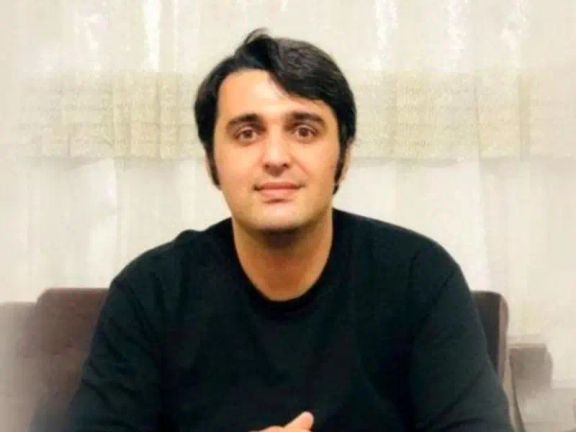
Legal action has been filed against the prison medic and jailer of Javad Rouhi, a protester who died under suspicious circumstances in Nowshahr Prison.
Majid Kaveh, the attorney for the family, said the medic faces charges of "involuntary manslaughter" while the jailer is accused of "failure to deliver prisoners' complaints to competent authorities." The case has now been forwarded to the Sari Criminal Court for further proceedings.
Rouhi was arrested in the midst of the September 2022 uprising during a protest in Nowshahr, where he was later sentenced to death under charges including dancing at a protest and allegedly burning a police kiosk. Additional charges of apostasy were levied against him for purportedly desecrating the Quran and insulting sacred values, charges that Rouhi and his legal representatives have disputed. CCTV evidence suggested Rouhi’s mere presence at the protest site, with no involvement in the alleged acts of vandalism or desecration.
Despite international outcry from organizations like Amnesty International which said authorities subjected Rouhi and others to "beatings, floggings, electric shocks, suspension, death threats and sexual violence to extract “confessions”", Iran has consistently shirked responsibility for his death and the deaths of other protesters, maintaining a stance of denial.
His death on August 31 last year was reported as being due to a "seizure" by Mizan News Agency, Iran's judiciary media outlet, in echoes of high profile deaths such as Mahsa Amini, who died in morality police custody for not wearing her hijab correctly. Her death sparked the 2022 Woman, Life, Freedom uprising. After a UN investigation attributing her death to violence while in custody, the government called the claims "baseless".

Farzaneh Qarahassanlou, imprisoned for her involvement in Iran's 2022 protests, has gone on hunger strike to protest the denial of urgent medical care after experiencing complete sensory loss on the left side of her body, sources told Iran International.
A source close to her case informed Iran International of the distressing conditions at Vakil Abad prison in Mashhad, where she is imprisoned. Despite her requests to consult a physician, she is receiving inadequate medical care.
The source said that the facility's medical personnel have administered only pain-relieving medication without conducting any examinations and she hasn't been granted leave to get medical consultation outside of prison.
The source also expressed concern over the well-being of other political detainees in the facility, including Fatemeh Sepehri, asserting that they are being deprived of adequate sustenance, leading to noticeable weakness and malnourishment. Fatemeh Sepehri, who has also been in prison since the nationwide protests, has undergone several operations, including an open-heart surgery, but still remains imprisoned.
In March, Mohsen Bayat, Farzane Qarahasanlou's lawyer, told Shargh News that his client had received a two-week ban on phone calls and a three-month ban on visitation for sending a voice message wishing Iranians a happy new year.
In a voice message published on social media, Qarahassanlou extended her wishes to all, mainly to "parents separated from their children" and "those who support prisoners inside and outside Iran," also expressing her love for her children who have been "unjustly kept away from their parents" for the past eighteen months.
In November 2022, Qarahassanlou, a lab technician, and her husband, Dr. Hamid Qarahassanlou, a radiologist, were arrested during protests in Karaj, near Tehran, where a Basij militia member, Ruhollah Ajamian, was beaten to death by angry protesters. Both have denied any involvement in the incident.
Security forces attacked protesters during a large protest rally held to commemorate Hadis Najafi, a young girl killed by security forces forty days earlier during protests across the country, dubbed as Woman Life Freedom movement, during which more than 550 protesters were killed.
The detainees also included Mohammad Mehdi Karami and Mohammad Hosseini, both young protesters, who were executed over Ajamian's death in January 2023 following a rush trial dubbed a travesty by human rights activists.
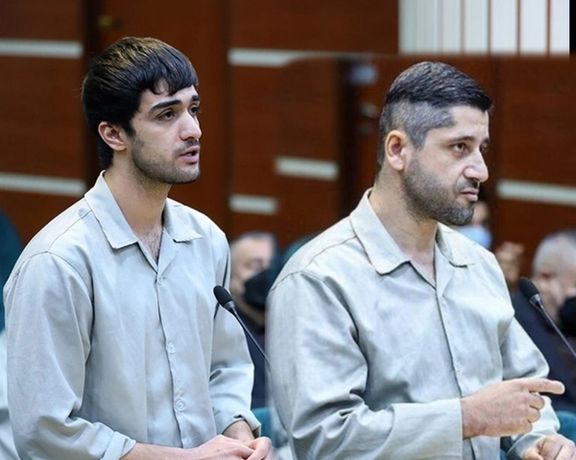
During the arrest and subsequent detention, the couple was severely beaten. Several broken ribs and a damaged lung necessitated three surgeries for Hamid, and the family said the assault had partly impaired his vision.
On November 6, 2022, state media broadcast forced confessions by the Gharehassanlous. It was reported that both Farzaneh and Hamid had visible signs of torture on their bodies.
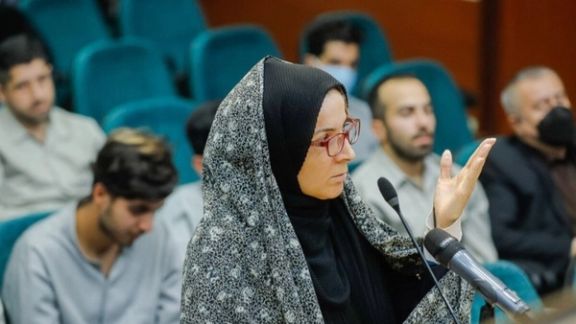
Hamid was initially condemned to death, while his wife Farzaneh faced a twenty-five-year prison sentence. However, these penalties were mitigated due to substantial social media outcry, international pressure, and a lack of evidence presented during a retrial.
A letter signed by over 1,100 doctors, including those from the Tehran University of Medical Sciences and across Iran, requested the release of Hamid and Farzane in December 2022. The letter highlighted their reputation as well-respected and charitable professionals.

The backlash was so intense that the Director of Public Relations for the Supreme Court of the Islamic Republic of Iran personally announced the appeal court proceedings in a Twitter message in January 2023.
Subsequently, it was announced that a court in Karaj, near Tehran, sentenced Hamid to fifteen years in prison, while his wife, Farzaneh, received a five-year sentence.
The family released a statement on social media shortly after the announcement of the new sentences, stating that even the footage of the incident obtained by security agents proves that the couple was not involved in the killing and was only present on the scene after leaving a protest in Karaj, near Tehran, on November 3.
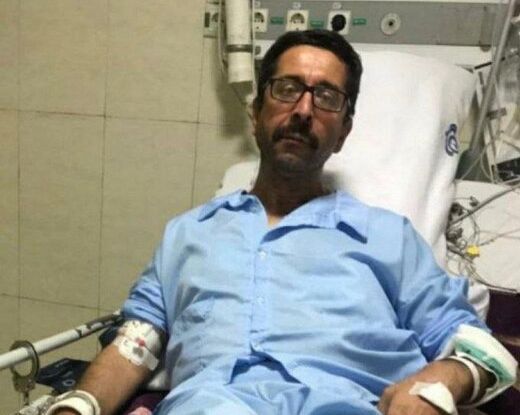
“We may ask for what crime, Farzaneh and Hamid have been placed in detention?” reads the statement, which described the very violent arrest of the couple and how it has greatly affected their daughter.
As members of the persecuted Sufi Gonabadi Order, the couple was well known for their involvement in charitable endeavors, including building schools for underprivileged children.
The United States Commission on International Religious Freedom reports that the couple is imprisoned on religiously oriented charges related to their Sufi beliefs, while "authorities falsely accused the Qarehassanlous of involvement in the killing of a member of a state-backed paramilitary force".